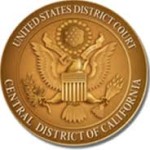
- How To Deal With IRS
- Final Notice of Intent to Levy-How To Stop IRS From Levy
- IRS Audit Representation
- How To Challenge An IRS Audit
- IRS Trust Fund Recovery Penalty
- IRS Offer In Compromise
- IRS Collection Due Process Rights
- IRS Levy Defense And Release
- IRS Lien Release Or Subordination
- IRS Installment Agreement
- IRS Unfiled Tax Returns
- IRS Penalties
- IRS Appeals Representation
- Real Estate Professional Audits
- Innocent Spouse
- Federal Criminal Tax Representation
- Federal Court Tax Litigation
- Federal Refund Litigation
- Bankruptcy

 Call David C. Dodge,
Call David C. Dodge,
Tax Attorney, for a
Free Telephone Consultation At: (877) 895-2950, and visit www.ATaxLawyer.com
for more helpful information.
FEDERAL LAW ALLOWS IRS TO ASSESS BUSINESS PAYROLL TAX LIABILITIES AGAINST INDIVIDUALS
Most business owners, and often non-owner employees, are shocked to learn IRS can and will assess {charge} them personally for unpaid business entity {most often a corporation) payroll trust fund taxes, called a “Trust Fund Recovery Penalty” [TFRP]. Payroll trust fund taxes are the amounts withheld from employee wage checks not paid to the U.S. Treasury. Typical individuals IRS targets for TFRP assessment are owners of the business entity, corporate officers, partners, limited liability company members, or any individual, that IRS claims was responsible to pay payroll trust fund taxes to the United States Treasury, but wilfully failed to pay. The wilful element is satisfied if the business entity paid other creditors during quarters that have unpaid payroll trust fund taxes. Most often, business owners and business entity bank account signers are IRS alleged as personally TFRP liable.
Sooner or later, an IRS Collection Division employee, a revenue officer (collector), will begin investigation by demanding the individual TFRP target submit to an in-person question and answer session where the revenue officer completes IRS form 4180, “Report of Interview with Individual Relative to Trust Fund Recovery Penalty” and demands the target sign it as factually accurate. My clients never appear before any IRS employee for any interview, or for anything else. I advise you never appear before IRS to provide live testimony or answer questions, rather, hire a qualified tax controversies lawyer to engage IRS and do your talking for you. Nearly always, revenue officers have already decided the TFRP target is personally liable before the requested in-person form 4180 interview. The revenue officer is seeking to populate IRS’ case file with evidence the individual target is TFRP liable based target answers to IRS trick questions
and completed form 4180 interview. To learn how I deal with a form 4180 interview, call me for a free telephone consultation.
Once the revenue officer concludes which individuals are TFRP liable they proceed to compiling internal IRS form 4183, “Recommendation re: Trust Fund Recovery Penalty Assessment” followed by their boss group manager’s rubber stamp approval. What follows next is the legal procedure to assess any individual a TFRP penalty.
UNDERSTAND TFRP PROCEDURE SO YOU CAN BEST PREPARE YOUR DEFENSE TO CHALLENGE PERSONAL LIABILITY.
Before IRS can assess {charge} any individual personally a TFRP, federal tax law requires IRS to first certified mail serve {most common} or in-person serve, a Statutory Notice of Deficiency which is an IRS letter 1153 formally accusing the individual he or she is personally TFRP liable. To see what an actual IRS letter 1153 looks like, visit my website, click “IRS Trust Fund Recovery Penalty”, and read the article. Always accept IRS certified mail because federal tax law does not require that the letter 1153 target actually receive or accept an IRS certified mailed letter 1153, only that IRS certified mail it to the target’s last known to IRS address.
To stop IRS from assessing a TFRP, the letter 1153 target must file an appeal within 60 days from the letter 1153 date. I advise such an appeal always be filed by certified mail, return receipt requested, within 60 days from the letter 1153 date, and all timely filed certified mail evidence be retained. Failure to file an appeal within 60 days from the letter 1153 date results in the TFRP being assessed – then the individual owes followed by IRS enforced collection actions. If the appeal is filed within 60 days from the letter 1153 date, the individual is not TFRP assessed, and the case is transferred to IRS Appeals Division, followed typically by four to twelve months of IRS Appeals’ do nothing delay, followed by an appeal hearing where the individual can present evidence and arguments he/she is not personally TFRP liable. Shortly thereafter IRS Appeals will mail a Decision Letter stating the individual is TFRP liable or not. If the IRS Appeals’ Decision Letter concludes the individual is TFRP liable, only then will IRS assess a TFRP shortly thereafter.
KNOW HOW LONG IRS HAS TO ALLEGE TRUST FUND RECOVERY PENALTY LIABILITY
IRS has three years to allege by statutory notice of deficiency letter 1153 that an individual is personally liable for unpaid business entity payroll trust fund taxes. Any business incurs federal payroll tax liability quarterly, and files quarterly IRS forms 941. Assuming all quarterly forms 941 were filed when due, IRS has three years to letter 1153 allege a TFRP, and procedurally, for all four quarters, the three year “Assessment Statute Expiration Date” is three years from the following Apr. 15. For example, if the 2014 1st quarter payroll trust fund taxes are not paid, and related form 941 is filed by its due date {Apr. 30, 2014}, IRS has until Apr. 15, 2018, to assert TFRP by letter 1153.
TFRP LIABILITY ASSESSMENTS MAY BE CHALLENGED IN FEDERAL COURT LITIGATION BY REFUND CLAIM
TFRP liability may be challenged by suing the United States in federal court. Procedurally, one employee’s payroll trust fund taxes must be paid for each TFRP quarter assessed, followed by filing an administrative IRS refund claim IRS will deny, followed by filing a refund litigation complaint against the United States in either the United States District Court or in the United States Court of Federal Claims within two years from the payment.
If your business does not owe federal payroll tax, visit www.ATaxLawyer.com to learn about IRS collection defense options and tactics.
 CALL TAX LAWYER DAVID DODGE FOR A FREE TELEPHONE CONSULTATION
CALL TAX LAWYER DAVID DODGE FOR A FREE TELEPHONE CONSULTATION
Get free advice from an experienced tax litigation and controversies tax lawyer and certified public accountant about how to resolve your tax debt when you cannot afford to full pay. Call (877) 895-2950 toll free and leave a message because I am often on the telephone.
You have been placed on my mailing list as a result of the IRS filing a tax lien. This newsletter does not represent legal advice as the facts of every case are different. This newsletter is a general information tool.
Authored by tax lawyer David C. Dodge, JD, CPA, MBA, whom routinely represents individuals and businesses in tax collection defense and collection remedy prosecution, including federal and California courts litigation. Tax collection practice is complex with many traps for the inept and inexperienced representatives. For the highest probability of a successful tax collection remedy, hire me as a tax lawyer with decades of tax collection case experience.
Tel.: (714) 378-4355 Toll Free Tel.: (877) 895-2950
Visit www.ATaxLawyer.com
EMail: Dodge@ATaxLawyer













